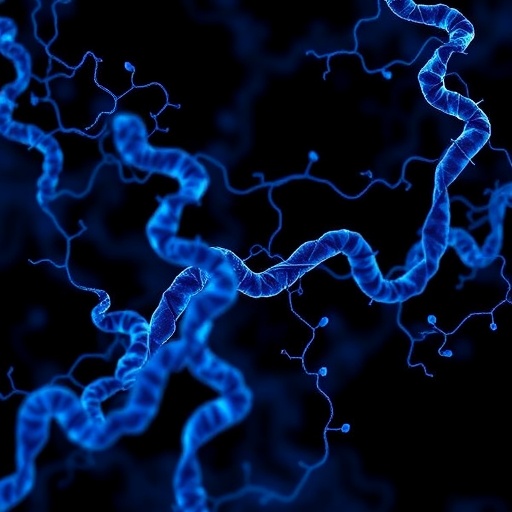A newly published study sheds light on the intricate mechanisms governing gene expression in response to cellular stress, a phenomenon crucial for understanding tumorigenesis. Cellular stress can be triggered by various factors, including oxidative stress, nutrient deprivation, and DNA damage. Under these challenging conditions, cells must adapt their gene expression profiles to survive. The research focuses on the role of a specific component of the Mediator coactivator complex, namely MED1, which has been shown to undergo acetylation in its intrinsically disordered region (IDR). This acetylation modification of MED1 plays a pivotal role in the cellular response to stress.
Recent scientific advances have revealed that the acetylation status of proteins can significantly influence their function. The study demonstrates that when cells are under stress, the enzyme SIRT1 interacts with the super elongation complex to deacetylate MED1 primarily within promoter-proximal regions. This deacetylation process is essential for the transcriptional regulation of stress-responsive genes. By removing acetyl groups from MED1, SIRT1 enhances the molecule’s ability to bind to DNA and recruit the transcription machinery, thereby amplifying the expression of genes that are vital for cellular resilience under stress.
The implications of deacetylating MED1 are particularly observed in estrogen-receptor-positive breast cancer (ER+ BC) cells. In these cells, both the deacetylated form of MED1 and an acetylation-defective mutant led to an increase in the expression of stress-activated cytoprotective genes. Simultaneously, these modifications enabled the recovery of growth-supportive genes that are typically suppressed during stress. This dual effect is particularly interesting, as it highlights how cells can maintain a balance between survival and growth, even under adverse conditions.
The mechanism by which deacetylated MED1 facilitates RNA polymerase II (Pol II) recruitment is equally compelling. It appears that the intrinsically disordered region of MED1 engages in specific interactions that promote the incorporation of Pol II into chromatin. This interaction is crucial because Pol II is the enzyme responsible for transcribing messenger RNA from DNA, a key step in gene expression. By enhancing Pol II recruitment, cells are effectively “reprogrammed” to prioritize the transcription of genes necessary for stress management, positioning them to better withstand challenging environments.
Notably, the study not only elucidates the biochemical pathways involved but also delves into the functional consequences of these processes. ER+ BC cells exhibiting deacetylated MED1 demonstrated a remarkable enhancement in growth rates as well as improved stress resistance in vitro. This finding underscores the potential of targeting the MED1 pathway as a therapeutic strategy, particularly in cancers where stress response mechanisms are often co-opted to support tumor growth and survival.
Animal models further supported these in vitro findings. The researchers utilized an orthotopic mouse model of ER+ BC to observe the outcomes of altered MED1 activity under stress conditions in a living organism. Mice harboring tumors with deacetylated MED1 displayed accelerated tumor growth and significant resistance to stress, illustrating the relevance of the study’s findings beyond cell culture and into more complex biological systems. This highlights the promising potential for harnessing these molecular mechanisms in developing new therapeutic interventions.
The study presents an innovative perspective on polycomb group proteins and their interactions with transcriptional machinery in the context of oncogenesis. The identification of MED1 as a critical regulator of gene expression under stress opens new avenues for investigative studies focused on transcriptional regulation within various cellular contexts, including cancer and other diseases characterized by dysregulated gene expression.
Moreover, these findings are likely to stimulate further research aimed at understanding the nuanced roles of other Mediator complex components and their modifications in the context of cellular stress responses. As our understanding of these regulatory networks expands, we may uncover novel targets for drug development aimed at modulating gene expression in a manner that could counteract malignant behavior in cancer cells.
Overall, this groundbreaking study not only highlights the significance of acetylation in the regulation of stress-responsive gene expression but also reinforces the connection between fundamental molecular biology and clinical applications in cancer therapy. As research continues to illuminate these interconnected pathways, we can anticipate the emergence of innovative strategies for effectively managing cancer progression and improving patient outcomes.
This study serves as a pivotal step in advancing our understanding of the intricate relationship between stress responses and oncogenic transcription, providing a framework for the development of targeted therapies aimed at manipulating these pathways. The research team has laid the groundwork for future explorations into how we can effectively harness cellular stress responses to combat cancer, with the ultimate goal of improving therapeutic strategies for affected patients.
In conclusion, understanding the specific roles of MED1 and its post-translational modifications reveals critical insights into the molecular landscape of gene regulation under stress. As scientists continue to explore these regulatory mechanisms, the knowledge gained will undoubtedly contribute to the development of innovative therapeutic approaches tailored to address the challenges posed by tumorigenesis and other related diseases, ultimately paving the way for new treatments that can improve patient care and clinical outcomes.
Subject of Research: Transcription regulation in response to cellular stress in breast cancer cells.
Article Title: MED1 IDR deacetylation controls stress responsive genes through RNA Pol II recruitment.
Article References:
Lin, R., Mo, Y., Barrows, D. et al. MED1 IDR deacetylation controls stress responsive genes through RNA Pol II recruitment.
Nat Chem Biol (2025). https://doi.org/10.1038/s41589-025-02035-7
Image Credits: AI Generated
DOI: https://doi.org/10.1038/s41589-025-02035-7
Keywords: MED1, transcription regulation, stress response, cancer therapy, epigenetics, RNA polymerase II, acetylation, breast cancer.




